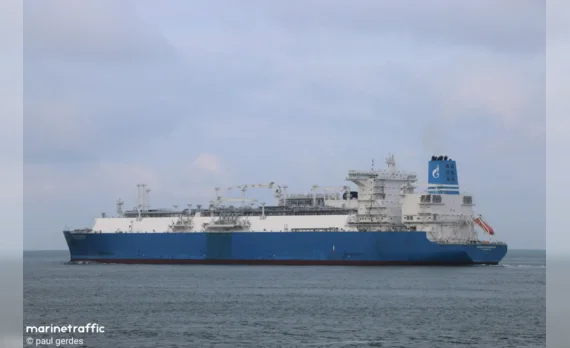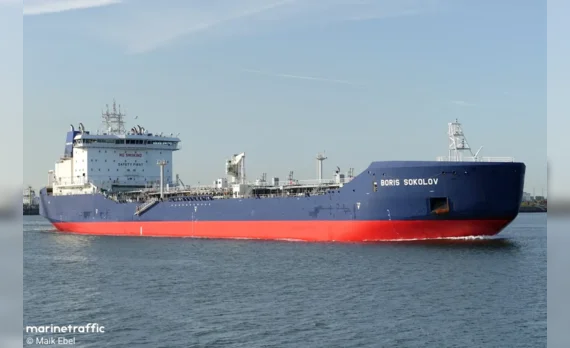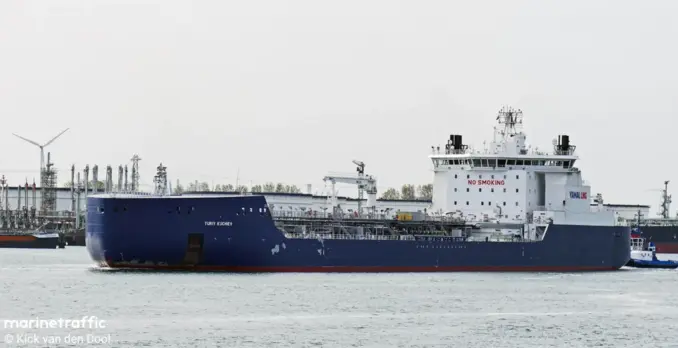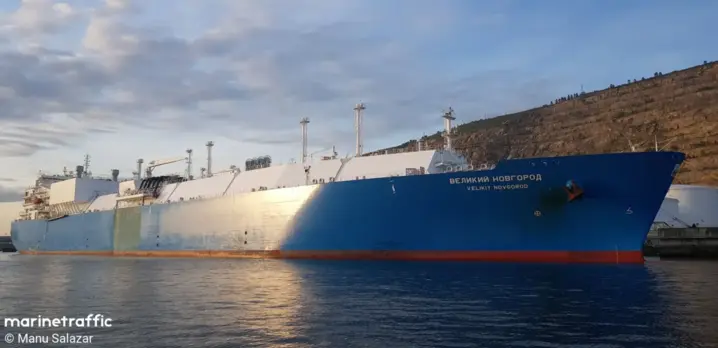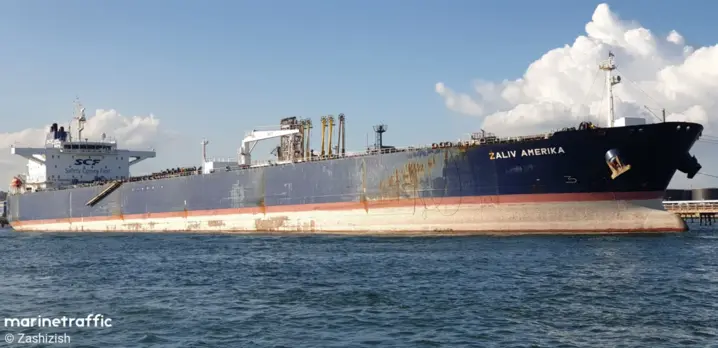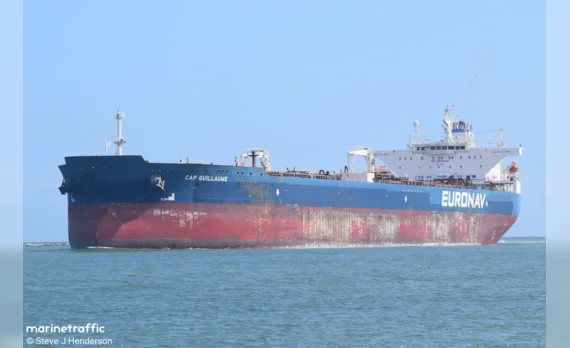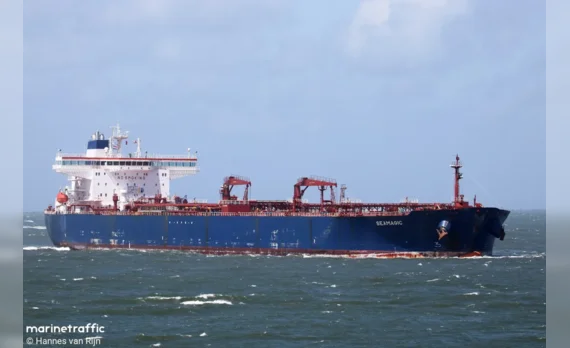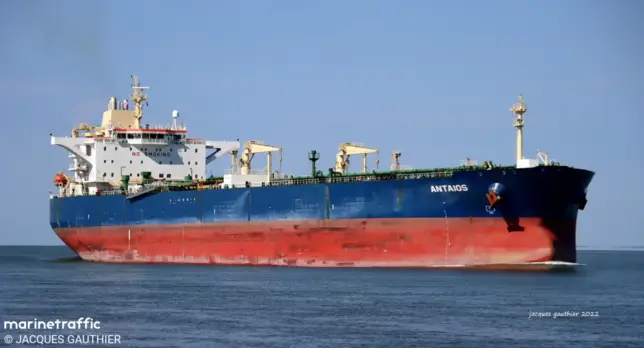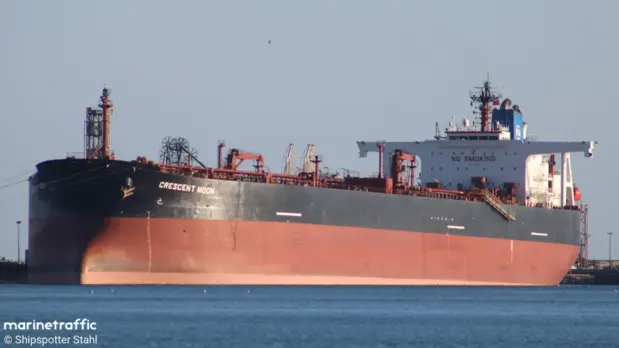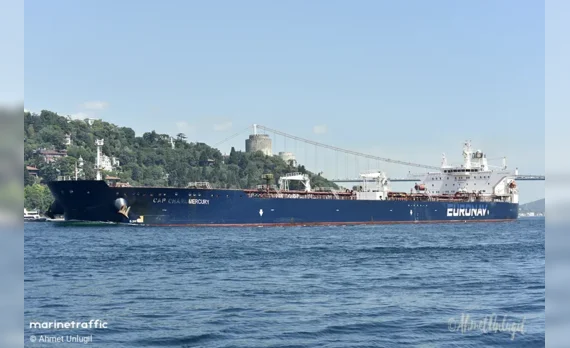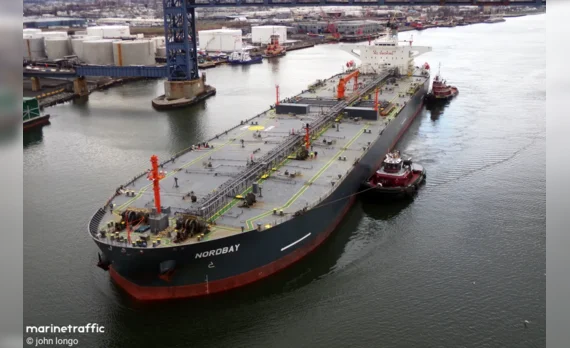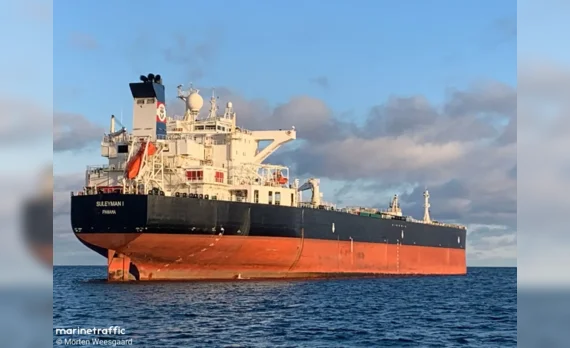During the period of the G7 and EU oil embargo and the price-cap policy on russian crude oil, the tanker is involved in the export of russian crude oil to third countries from russian ports, including with the AIS system disabled.
The international NGO Greenpeace refers to the tanker as part of the shadow fleet of tankers that transport russian oil around the world and threaten the environment.
The owner and commercial manager of the tanker since October 01, 2024 is an unknown company YO SHUI MARINE LIMITED, established on September 19, 2024 in Hong Kong. The ISM-manager of the tanker is the Indian company AMSHA MARITIME, which manages another tanker 'LACONIA' (IMO 9257022), affiliated with the Indian company Gatik Ship Management.
The tanker 'KRISHNA 1' is also affiliated with the Indian company Gatik Ship Management, one of the leading operators of the so-called 'shadow fleet', which has become the largest carrier of russian oil under sanctions since the beginning of the full-scale war against Ukraine.
Tankers operated/managed by India's Gatik Ship Management continue to be used by related companies and call at russian ports.
As sanctions are being imposed, russia uses a scheme of "juggling" ships between related companies to conceal oil exports outside the price cap and other restrictions, as well as to hide the real owners of ships, and to ensure unimpeded transportation of fossil fuels by a 'shadow' fleet of obsolete oil tankers, creates new companies for these purposes (in the UAE, Hong Kong, India, Turkey, Mauritius, Seychelles, and other jurisdictions) with non-transparent organizational and ownership structures. In order to implement this scheme, technical/commercial management and ship owners are constantly changing, and vessels are renamed with a change of flag, MMSI, call-sign, including for sanctioned vessels. Shadow fleet vessels operate under "convenient flags", which allows them to conceal their true origin and avoid control by international organizations and insurance companies.
Almost all vessels that are involved in the transportation of russian oil by the shadow fleet since 2022 have been certified by the Indian regulator Indian Register of Shipping (IACS). The certification of shadow fleet vessels allows the shipowner/operator to insure the vessels, which, in turn, allows the vessels to enter ports and pass through various specific sea routes (straits, canals, etc.).
The 'shadow' fleet, transporting huge volumes of crude oil through heavily trafficked routes through narrow straits close to the coastline, without proper P&I insurance, with automatic identification systems disabled, threatens an environmental disaster with significant economic costs to be borne by the affected coastal countries and/or the international community. The recent incidents off Malaysia only underscore the need for swift action to curb the potentially devastating impact of the growing 'shadow fleet'. 'Shadow' tankers have already been involved in 50 incidents from the Danish Straits all the way to Malaysia since russia's full-scale invasion of Ukraine.
According to CREA, from January to August 2024, the number of shadow tankers crossing the Danish Straits in Europe increased by 277% compared to the same period in 2022, with 64% of the 46 million tons of russian marine oil transported through the Danish Straits being transported by shadow tankers. In the same period, the number of shadow tankers in the Straits of Dover and Gibraltar increased by 355% compared to 2022, transporting 67% of the 37 million tons of oil through the straits. The Suez Canal experienced a staggering 649% increase in shadow tanker traffic, with 69% of the 52 million tons of russian crude oil passing through it being transported by these vessels.
Thus, the 'shadow fleet' of the russian federation continues to provide multibillion-dollar revenues for the kremlin bypassing sanctions, disguising its activities under the flags of third countries, using complex schemes to conceal owners, and poses significant threats to environmental safety with significant economic costs for coastal countries and/or the international community due to the outdated and inadequate insurance of shadow fleet tankers.
On December 16, 2024, the EU imposed sanctions on the tanker (effective from December 17, 2024) due to the transportation of crude oil or petroleum products originating in or exported from russia, using irregular high-risk shipping practices as set out in the International Maritime Organization General Assembly Resolution A.1192(33); in relation to contributing to, supporting actions or policies aimed at the exploitation, development or expansion of the energy sector in russia, including energy infrastructure.
On December 23, 2024, Switzerland imposed sanctions on the vessel due to the transportation of crude oil or petroleum products originating in or exported from russia, using irregular high-risk shipping practices as set out in the International Maritime Organization General Assembly Resolution A.1192(33); in relation to contributing to, supporting actions or policies aimed at the exploitation, development or expansion of the energy sector in russia, including energy infrastructure.
On January 10, 2025, USA imposed sanctions on the vessel.
In June 2025, Canada imposed sanctions on the vessel.
On July 21, 2025, the United Kingdom imposed sanctions on the vessel.
